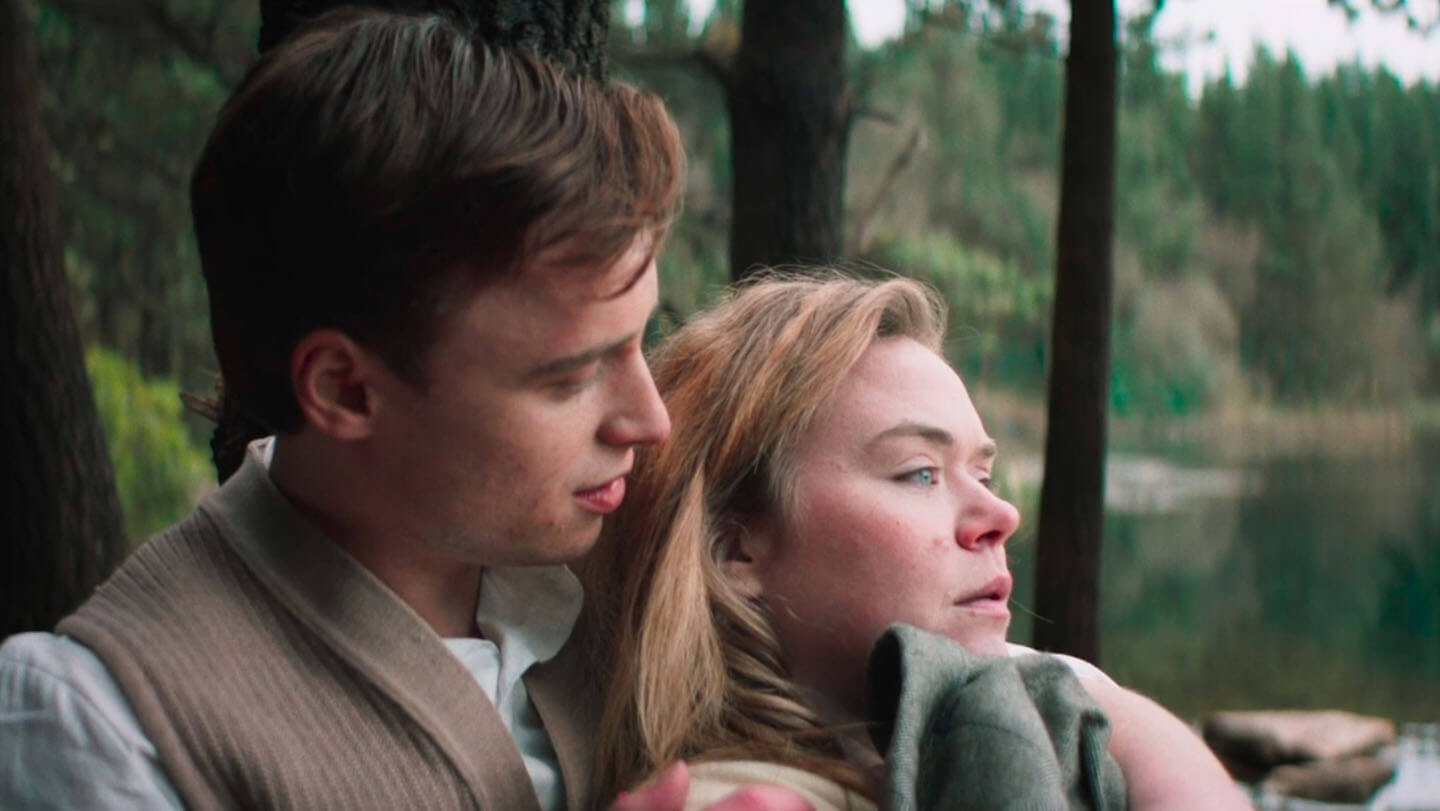Diarmuid Donohoe’s Uroboros is a depiction of historical, gendered trauma in 20th century Ireland. The film sets out to portray the fractured mind of its protagonist with a non-linear narrative, showing the reach of trauma, and through it, the reach of the tyrant at its root.
Sunning by a lake surrounded by cliffs, the rosy faced Moira (Emma Dargan-Reid) is on the cusp of adulthood proper. A mix of introspective and gleeful in that childlike way that should last a few years yet, she is an immediately, endearingly recognisable character. About to leave Ireland with her beloved Eamonn (Liam Bixby) the next day, there are mere hours that she must negotiate with her disapproving family. The joy does not last. Flashes of something darker begin to insert themselves into the tender opening scene without warning. The first connection to it comes in the church where her family, prim and proper in contrast to her windblown hair and bare feet, are attending mass. The air of oppression is similar but not quite the same.
The narrative blends a linearly progressing story (into increasingly troubled waters) with tidings of a desperate fate: completely sane, she will be institutionalised at her father’s (Brian Fortune) will. Some of the film’s mystery lies in not knowing how involved her mother (Lacy Moore) had been in having her declared insane and it is also part of the tragedy. At her most heartbreaking, Dargan-Reid brings to mind the child Myrtle (Darcey Wilson) in the 2015 film The Dressmaker.
As more of the events unfold in the haphazard way of memories, the background score intensifies into anguish on a magnitude that reaches well beyond Moira and yet keeps her in its centre. What started as light notes blends into church organs, building up into something frantic and perfectly slotted with diegetic sounds of despair. The film’s epigraph begins to make itself terribly comprehensible. Moira’s trauma and tormentor are watering at the mouth, ready to devour her—a wretched inverse of how excited she is to embrace her new life in a new country.
This is how the film understands the trauma of oppression—as anger, fear and primarily, the utter inability to exit. The tormentor takes root until it replaces everything that existed before with itself. Uroboros is psychological horror.
Watch Uroboros Short Film Trailer
Uroboros: Warped Time and Other Horrors of Oppression
-
Direction
-
Cinematography
-
Screenplay
-
Editing
-
Music
